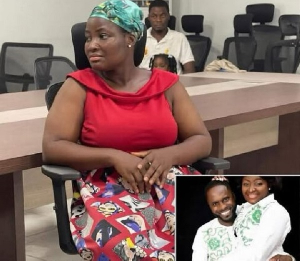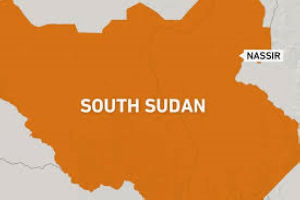The Sefwi Wiawso and Akontombra Bodi Landscape Management Board (LMB) were given a major boost last week when a Timber and Logging firm, John Bitar Limited (JCM) confirmed its participation in the landscape governance and pledged investment of one hundred thousand timber shade trees in 3 years (36,000 in year 1) to support the reforestation of over 60,000ha of degraded areas identified outside the reserves in cocoa farmlands.
Management of John Bitar Limited revealed that, JCM will establish a nursery this year, aiming to make 36,000 seedlings available to farmers by June 2020. JCM is also working with the Forestry Commission to implement a forestation project at Manzan, a major degraded forest area in Western North Region.
Speaking in an interview with this reporter Mr. Clement Wolenyo, Sustainability and Certification Manager at JCM said this private sector investment deal was brokered in a meeting facilitated by the Rainforest Alliance and Olam Ghana Limited under their landscape partnership project, funded with UK-Aid from the British people.
According to the Sustainability and Certification Manager Since 2017, the project has identify the LMB as a partner with clearly outlined roles and responsibilities for stakeholders such as the Forestry Commission, COCOBOD, Producers, Traditional authorities, Local Government, Communities and Civil Society groups who will help secure the remaining forests are restored for economic opportunities.
"Given the chance, most forest-fringe communities will protect, rather than plunge their forest because they know that their very lives depend on it" he said.
He pointed out that the forest provides food, water, shelter, medicine and microclimate for a sustainable cocoa production in the Western North and Western Regions of Ghana. "Out of the 10 cocoa producing regions in Ghana, more than 55 percent of Ghana’s cocoa today comes from these two regions adding that to secure cocoa supply, Olam Ghana Limited has started some work in the landscape to secure constructive working relationships with other private sector partners in the spirit of pre-competitive collaboration to achieve deforestation free cocoa" he revealed.
On his part, Sustainability Manager at Olam Ghana Limited Mr. Isaac Sackey also indicated that the best way to keep the trees and prevent the carbon in them from entering the atmosphere, is by letting local people into the forests: local people with the legal right to control what happens there.
"Ghana has one of the highest deforestation rates in Africa and the world, at 3% per annum. For decades, Ghana was one of the leading timber exporters in the world, but its forest cover has shrunk significantly over the years leaving timber processors in the country contemplating the importation of Lumber from neighbouring countries and South America" he said.
The Sustainability Manager whispered that a 2016 report by Forestry Commission, the government agency responsible for the protection and management of forests and protected areas in the country indicated that nearly 80% of Ghana’s forest resources under state management had been lost to illegal logging activity since 1990.
Mr. Isaac Sackey explains to this reporter that Government has been reluctant to give up control and devolve power to the local people to share in the management and benefits of the forest.
Vice chair of Sefwi Wiawso LMB Madam Eunice Affum also said “I find it sad and worrying that our government does not fully recognize our contribution and care to speed up processes to fully legislate devolution of powers as a key climate smart strategy.”
“No one has a stronger interest in the health of forests than our women and young people and communities that depend on them for our livelihoods and culture,” she said.
Business News of Wednesday, 31 July 2019
Source: Nana Yaw Reuben Jnr













